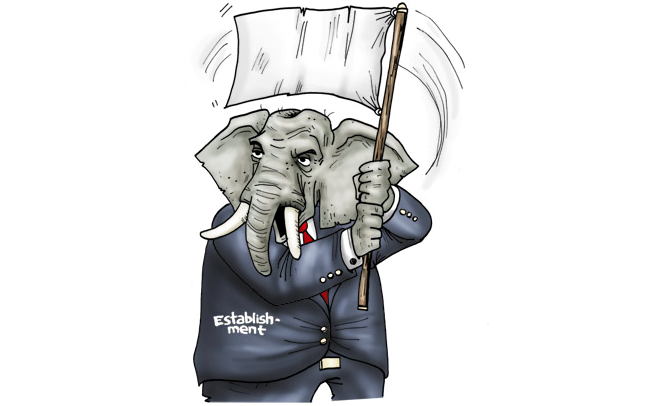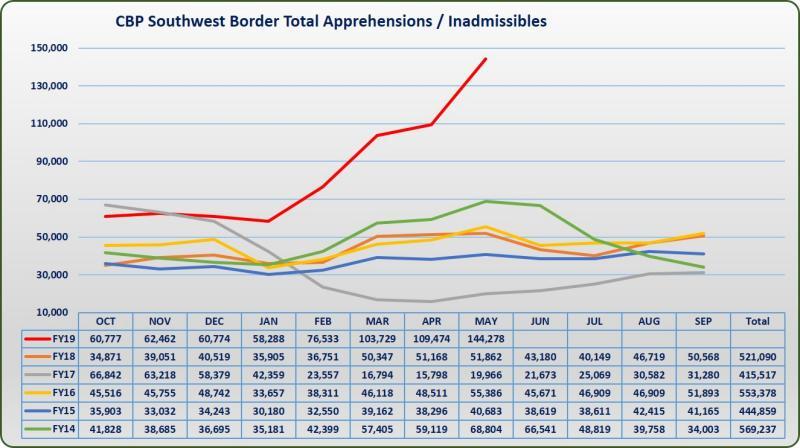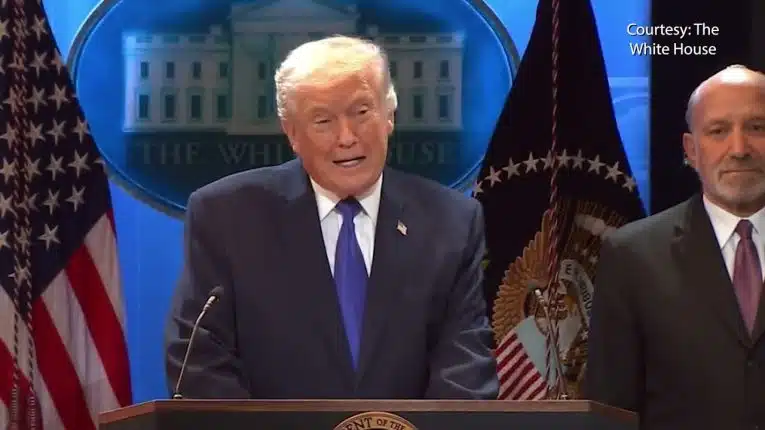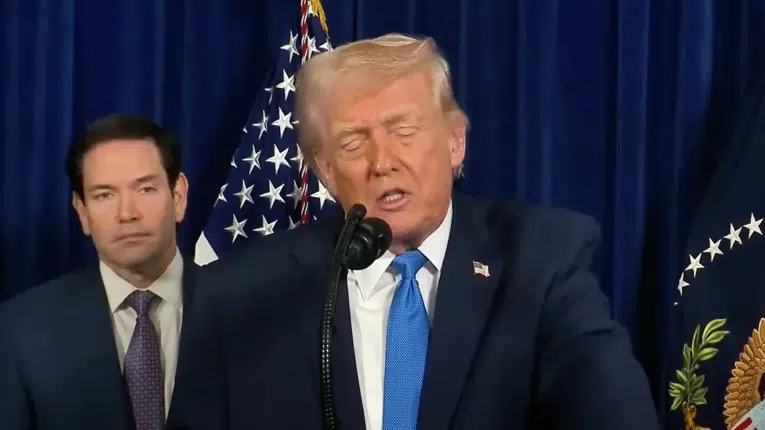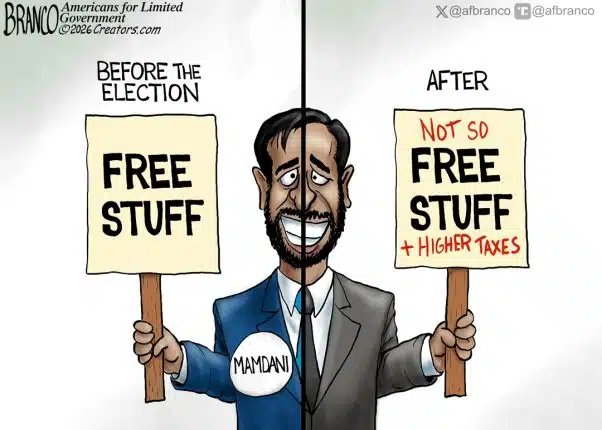President Donald Trump shook things up in the U.S. relationship with Mexico by threatening on May 30 to raise tariffs on all goods out of Mexico to 5 percent, increasing from there, until Mexico gets control of illegal immigrants coming across the U.S. border into America.
Trump wrote on Twitter, “On June 10th, the United States will impose a 5% Tariff on all goods coming into our Country from Mexico, until such time as illegal migrants coming through Mexico, and into our Country, STOP. The Tariff will gradually increase until the Illegal Immigration problem is remedied… at which time the Tariffs will be removed. Details from the White House to follow.”
This of course was enough to send Wall Street into another mini-panic, with corrections on indices like the S&P 500, which have since recovered to its pre-May 30 levels as the Federal Reserve hinted at a potential interest rate cut.
Trump’s threatened tariff comes as apprehensions on the southern border hit 144,278 in May, the highest in a decade, according to data compiled by the U.S. Customs and Border Patrol. Eight months into fiscal year 2019, 675,989 apprehensions amid the surge in migration has already topped the amount of apprehensions in all of fiscal year 2018, which was 521,090. This year could top 1 million if it continues accelerating.
In the meantime, Senate Republicans are strongly signaling opposition to Trump’s proposed tariff if it comes via another national emergency declaration, The Hill’s Jordain Carney reports.
Carney noted, “the administration indicated it had not yet reached a resolution on whether or not it would need to” declare another emergency but, if it did, Sen. Ron Johnson (R-Wis.) warns, “tariffs are not real popular in the Republican conference.”
That would give Congress an opportunity to potentially vote to overturn the emergency again. Congress previously voted to overturn the President’s emergency declaration on the border, only to be vetoed by President Trump. The House then failed to override the veto on March 26.
What it really demonstrates, though, is the GOP’s continued lack of resolve to deal with Mexico in meaningful ways, particularly when it comes to border security and illegal immigration. This, despite the fact that the drugs, gangs and human trafficking pose security concerns and the porous border could be secured in part with Mexico’s help.
This is one of the many reasons President Trump was nominated by Republicans in 2016 and also one of the reasons he won the general election. He was willing to take a stronger stance on Mexico.
Apparently, for the Washington, D.C. establishment, taking punitive actions against Mexico via tariffs is still off limits.
In the meantime, this is not the first time Trump has suggested using trade policy to affect outcomes on Mexico’s posture toward illegal immigration into the U.S. On April 23, 2018, Trump had suggested that Mexico curbing illegal immigration might come up in the USMCA negotiations, stating on Twitter, “Mexico, whose laws on immigration are very tough, must stop people from going through Mexico and into the U.S. We may make this a condition of the new NAFTA Agreement.”
Although that didn’t occur — the USMCA was agreed to by the U.S., Mexico and Canada without provisions curbing illegal immigration — clearly Trump is revisiting the issue with his proposed tariff.
Mexico is allowing hundreds of thousands of people in the migrant caravan to traverse its lands directly into America. The question here is whether Congress, particularly Republicans, will support the President in exerting pressure via the tariffs and foreign policy on Mexico to address a key security concern. So far, their response is weak, but what do they care? Apparently nervous investors are more important than securing the border.
Updated to reflect latest CBP data for May.
Robert Romano is the Vice President of Public Policy at Americans for Limited Government.


